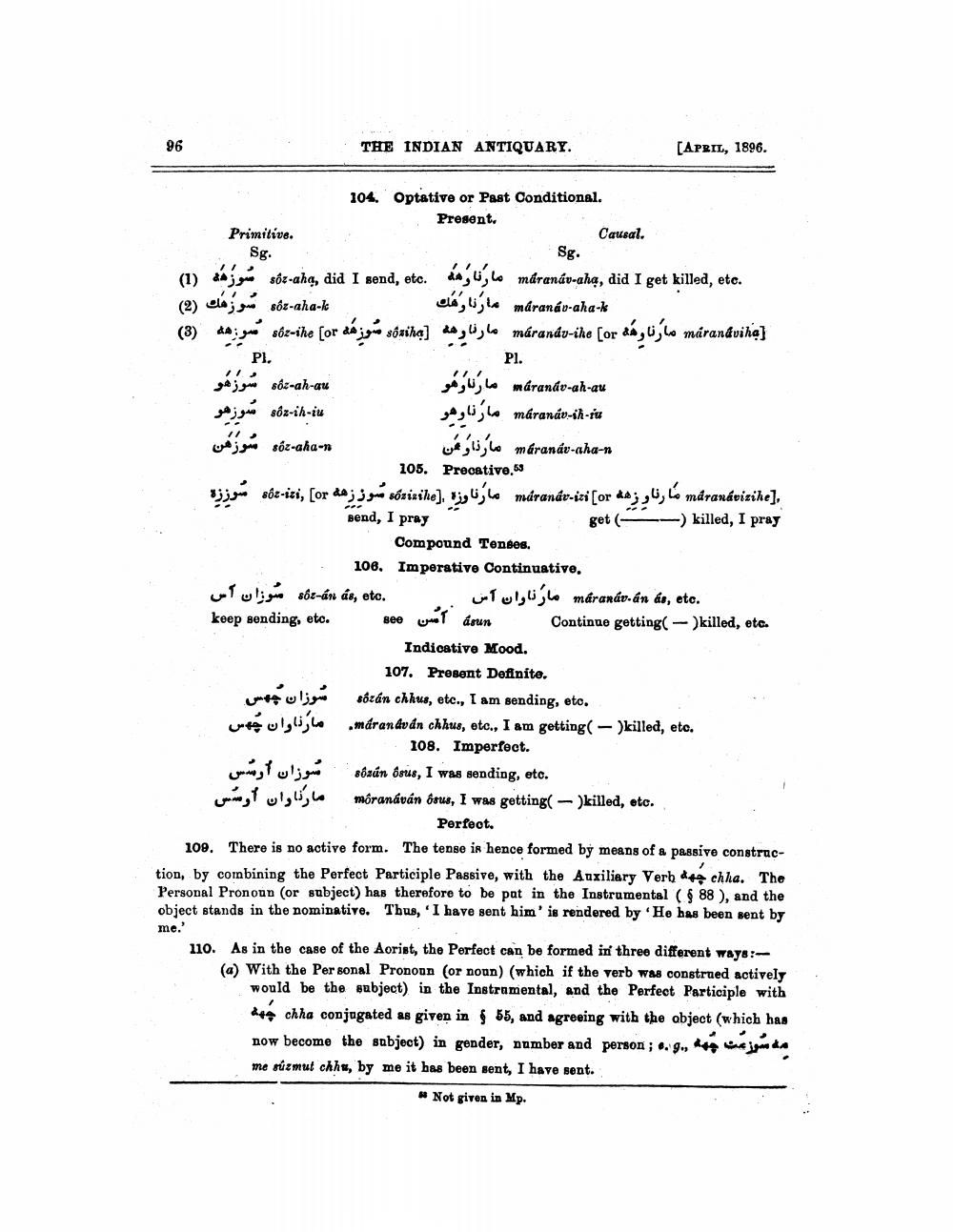________________
96
Primitive.
Sg.
112
(1)
(2) sôz-aha-k
sôz-aha, did I send, etc.
Pl. 12
مارنا وهه marana-aha-k مارنا وهك
miraadiha مارنا ره marande-ihe or مارناره taiba شوزه adride or شود (3)
soz-ah-au
siz-ih-iu شوهر
j soz-aha-n
THE INDIAN ANTIQUARY.
104. Optative or Past Conditional. Present.
keep sending, etc.
موزان چهس
et ه که ماه شروان اس
سوزان آرسس مارداران آرسس
106.
105. Precative,53
sót-iti, [or da sózizihe], je maranav-izi [or dalo múranávizihe], Bend, I pray
get (
killed, I pray
see
Causal.
Sg.
máranáv-aha, did I get killed, etc.
Pl.
marande-ah-au مارناره marana-ak-fu مارنا وهو
وعه sand مارتار في
Compound Tenses.
Imperative Continuative.
asun آسن
[APRIL, 1896.
.marande de fr, etc مارتاران آس
Continue getting(-)killed, etc.
Indicative Mood.
107. Present Definite.
sózán chhus, etc., I am sending, etc.
mdranded chhus, etc., I am getting(-)killed, ete.
108. Imperfect.
sôzán ôsus, I was sending, etc.
môranáván ôsus, I was getting(-)killed, etc.
Perfect.
109. There is no active form. The tense is hence formed by means of a passive construction, by combining the Perfect Participle Passive, with the Auxiliary Verb de chha. The Personal Pronoun (or subject) has therefore to be put in the Instrumental (§ 88), and the object stands in the nominative. Thus, 'I have sent him' is rendered by 'He has been sent by
me.'
110. As in the case of the Aorist, the Perfect can be formed in three different ways:(a) With the Per sonal Pronoun (or noun) (which if the verb was construed actively would be the subject) in the Instrumental, and the Perfect Participle with 244 chha conjugated as given in § 55, and agreeing with the object (which has now become the subject) in gender, number and person; . g., me süzmut chha, by me it has been sent, I have sent.
Not given in Mp.
مه شوزمت چهه .




